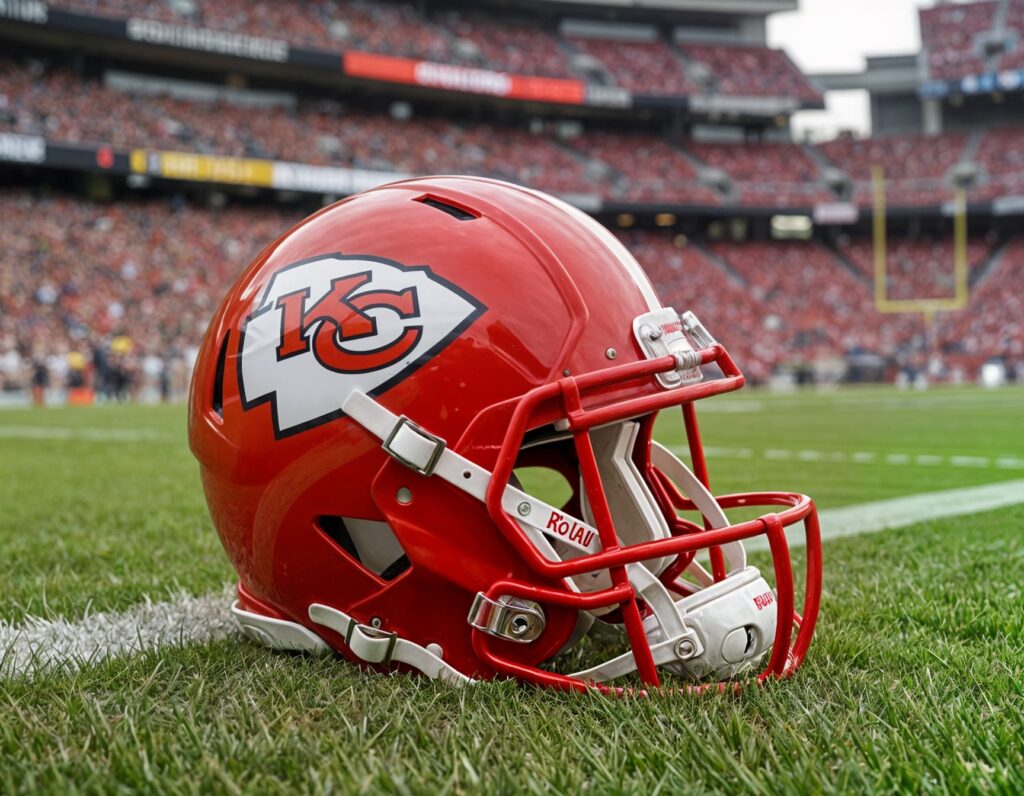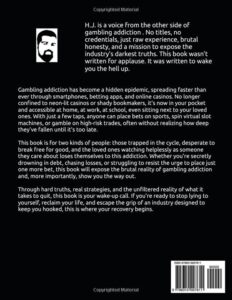We’ve all seen them—the fans who paint their faces, who can’t focus at work the day after a devastating loss, whose entire weekend mood hinges on whether their team covered the spread. In sports bars across the country, you’ll find people whose hands tremble slightly as they watch the final seconds tick down, whose blood pressure spikes with every contested call, whose sense of self-worth seems inextricably tied to the performance of athletes they’ve never met.
While passionate fandom can be a source of joy, community, and meaning, there’s a darker side to sports obsession that we rarely discuss: the genuine psychological toll it takes on those who’ve allowed their emotional wellbeing to become hostage to outcomes they cannot control.

The Illusion of Control
At the heart of unhealthy sports fandom lies a cognitive distortion that psychologists have long recognized: the illusion of control. Fans wear their “lucky” jerseys, sit in the same spot on the couch, perform elaborate pre-game rituals—all in the unconscious belief that somehow, their actions influence events happening hundreds or thousands of miles away.
This wouldn’t be problematic if it were simply quirky behavior. But when fans genuinely believe their team’s performance reflects on them personally, when they internalize losses as personal failures, the psychological consequences become very real. The stress hormones that flood the body during a tense game—cortisol, adrenaline—are the same ones released during genuine threats to our wellbeing. Our bodies can’t distinguish between a fourth-quarter collapse and an actual crisis in our lives.
The Dopamine Rollercoaster
Sports fandom activates the brain’s reward circuitry in ways that closely mirror addictive behaviors. When your team scores, dopamine floods the nucleus accumbens—the same region activated by gambling, drugs, and other potentially addictive activities. The anticipation before a big game, the tension during close contests, the euphoria of victory—these create a neurochemical cycle that can be genuinely difficult to resist.
But unlike healthy sources of dopamine (achievement, social connection, creative pursuits), sports fandom offers an endless cycle of highs and lows over which you have absolutely no control. You’re essentially strapping yourself into an emotional rollercoaster and handing the controls to strangers, then riding that coaster several times a week for months on end.
The crashes after losses can be profound. Research has documented increased rates of domestic violence, heart attacks, and even suicide following devastating sports losses. After the 2014 World Cup, Brazilian hospitals reported a significant uptick in cardiac emergencies following their team’s humiliating 7-1 semifinal defeat. This isn’t simply disappointment—it’s physiological distress.
Identity Fusion and the Erosion of Self
Perhaps the most insidious aspect of sports obsession is what psychologists call “identity fusion”—when the boundary between self and group becomes blurred. Fans begin saying “we won” and “we lost,” as though they were on the field themselves. Their team’s jersey becomes a second skin. The team’s history becomes their history.
This might seem harmless, even admirable in its display of loyalty. But when your sense of identity is substantially derived from an external source—especially one as volatile and unpredictable as sports—you’ve essentially outsourced your self-worth to factors beyond your control.
Consider the fan who introduces himself by his team affiliation before mentioning his career, family, or personal interests. Who decorates his home almost exclusively in team colors and memorabilia. Whose social calendar revolves entirely around game schedules. Whose relationships suffer because he’s emotionally unavailable for days after losses. What happens to this person’s sense of self when the team has a losing season? Or worse, when age or life circumstances eventually force them to step back from their fandom?
The Social Pressure Cooker
Modern fandom isn’t conducted in isolation—it’s a social phenomenon amplified by technology and media saturation. Social media has transformed sports fandom into a 24/7 engagement opportunity, where every play is dissected, every coaching decision is debated, and every loss spawns a thousand hot takes.
This creates enormous social pressure. Fans feel compelled to watch every game, to stay current on every roster move, to participate in endless online debates. Missing a game means missing out on shared cultural moments, inside jokes, water-cooler conversation. The fear of social exclusion keeps fans glued to screens even when the activity has stopped bringing them joy.
Fantasy sports have intensified this dynamic exponentially. Now fans aren’t just emotionally invested in one team’s success—they’re tracking dozens of players across multiple games, their moods swinging wildly based on individual statistical performances. A running back’s injury or a quarterback’s interception can ruin someone’s entire week, not because they care about that player, but because of the impact on their fantasy standings.
The Financial Drain
The psychological costs are compounded by very real financial ones. Season tickets, streaming subscriptions, cable packages, team merchandise, travel to away games, sports betting—the expenses add up quickly. Some fans spend thousands of dollars annually on their fandom, money that might otherwise go toward retirement savings, debt reduction, or experiences that actually enrich their lives.
Sports betting deserves special mention here. The explosive growth of legalized sports gambling has added an entirely new dimension to the stress of fandom. Now fans aren’t just hoping their team wins—they have money riding on specific outcomes, point spreads, player performances. The dopamine hits are higher, but so are the crashes. Problem gambling often begins innocuously, with small bets that gradually escalate as fans chase losses and try to recapture the high of early wins.
When Passion Becomes Pathology
So how do you know when normal fandom has crossed into unhealthy obsession? Here are some warning signs:
Emotional dysregulation: Your team’s performance has a significant and lasting impact on your mood. You find yourself genuinely depressed or anxious for days after losses. You snap at family members, can’t focus at work, or lose sleep ruminating over games.
Neglected responsibilities: You regularly skip important commitments to watch games. Your work performance suffers because you’re distracted by sports. Your relationships are strained because you prioritize games over quality time with loved ones.
Financial strain: You’re spending money you don’t have on tickets, merchandise, or gambling. You’ve gone into debt to support your fandom. You hide sports-related expenses from your partner.
Physical symptoms: You experience chest pain, headaches, digestive issues, or other stress-related symptoms during or after games. Your blood pressure spikes. You drink excessively or engage in other unhealthy coping mechanisms around game days.
Loss of other interests: Sports have crowded out other hobbies and interests. You struggle to have conversations about topics unrelated to sports. Your identity has become narrowly defined by your fandom.
Relationship conflicts: Your fandom regularly causes arguments with family or friends. People have expressed concern about your behavior. You’ve lost friendships over sports-related disputes.
Reclaiming Balance
If you recognize yourself in these patterns, it’s worth examining your relationship with sports fandom. This doesn’t mean you need to give up sports entirely—for many people, being a fan genuinely enhances their quality of life. But it does mean creating healthier boundaries.
Diversify your identity: Invest time and energy in pursuits that are intrinsically meaningful and over which you have control—creative hobbies, physical fitness, learning new skills, deepening relationships. Build a richer sense of self that isn’t dependent on your team’s performance.
Practice emotional awareness: Notice when your mood is being hijacked by a game. Remind yourself that this is entertainment, not a reflection of your worth as a person. Develop the ability to emotionally detach when needed.
Set boundaries: Decide in advance which games are truly important to watch live and which you can catch highlights of later. Create screen-free times and spaces in your life. Don’t check scores or sports news first thing in the morning or last thing at night.
Cultivate perspective: Remember that every season, half of all teams and fans will experience disappointment. Championships are rare. If your happiness depends on your team winning it all, you’re setting yourself up for a lifetime of unhappiness.
Connect authentically: Use sports as a catalyst for genuine social connection, not as a substitute for it. Attend games with friends not just to watch, but to spend quality time together. Focus on the shared experience rather than solely on the outcome.
Seek help if needed: If you’re experiencing symptoms of depression or anxiety tied to your fandom, or if you suspect you have a gambling problem, don’t hesitate to reach out to a mental health professional. These are real issues that deserve real support.
The Paradox of Fandom
Here’s the fundamental paradox: sports are at their best when we care deeply about outcomes that ultimately don’t matter. The drama, the tension, the joy of victory—these are only possible because we’ve chosen to invest emotionally in something that has no bearing on our actual wellbeing.
But when we forget that we’ve made that choice—when we lose the ability to step back and recognize sports as the entertainment they are—we trap ourselves in a cycle of externally-imposed stress and disappointment.
The healthiest fans are those who can maintain what philosophers might call “playful seriousness”—the ability to be fully engaged in the moment while maintaining perspective about what really matters. They can experience the full emotional range of fandom without letting it bleed into the rest of their lives. They remember that they’re spectators, not participants. That their team’s failures are not their failures. That there’s always next season, but more importantly, that next season doesn’t really matter either.
Sports can be a wonderful part of a balanced life—a source of community, excitement, tradition, and shared cultural experience. But they should enhance our lives, not define them. The moment your team’s performance has more impact on your happiness than your own choices and actions, it’s time to step back and reconsider what you’re really getting from your fandom.
After all, the final whistle always blows. The season always ends. The question is: when it does, do you still know who you are?
Hey there! We hope you love our fitness programs and the products we recommend. Just so you know, Symku Blog is reader-supported. When you buy through links on our site, we may earn an affiliate commission at no extra cost to you. It helps us keep the lights on. Thanks.
Disclaimer: The information provided in this discussion is for general informational and educational purposes only. It is not intended as medical or professional advice. Only a qualified health professional can determine what practices are suitable for your individual needs and abilities.


